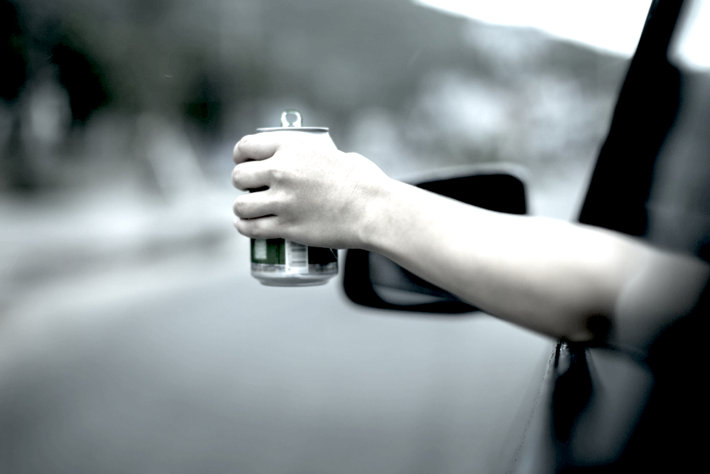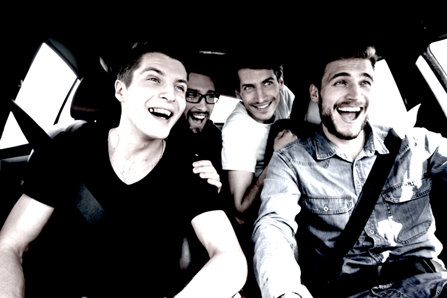Youth Too Often Choose to Ride with Impaired Drivers, Not Realizing They Risk Their Lives

Peer pressure can be obvious or it can be subtle, but when it comes to drugs and our children, peer pressure can be deadly.
Peer pressure shows up in the obvious form of taunts or scorn if a person is unwilling to join in some activity — even a dangerous one. It can show up in a more subtle form, as when someone smirks or sneers silently or simply shuns the individual in the future.
It can be terribly hard for a young person to resist all the different kinds of peer pressure pushing him (or her) in the direction of drug use or underage alcohol use. But even if he does resist the temptation to use drugs or drink, there are other pitfalls waiting. He could be persuaded by this overt or subtle peer pressure to put his life at risk in other ways.
One of the most dangerous risks is riding with a driver who has been drinking or using drugs. When you’re many miles from home, with no other way to get home other than with your original driver, what are you to do? Make a fuss? Appear critical and judgmental by refusing a ride?
Really? Refuse a ride with an impaired driver when everyone else is piling in the car? It’s a hard lesson for a young person to accept. They’ll look critical, judgmental. Yes, it’s true.
But if a catastrophe happens, their refusal will suddenly make very good sense to any survivors. But that realization could come too late for anyone injured or killed in an accident caused by an impaired driver.
One-Third of Youth DO Get in That Car

A recent survey revealed that about a third of recent high school graduates had made the choice to accept a ride from an impaired driver. Here’s a breakdown of their responses.
Within two years of their graduations:
- 23 percent of young adults had ridden with a marijuana-impaired driver on one or more occasions
- 20 percent had ridden with a driver impaired by alcohol
- 6 percent had ridden with a driver impaired by glue or solvents or strong illicit drugs such as amphetamines, opioids or cocaine.
Of course, most of these young people made it home safely. The ones that didn’t, we may have read about in our local newspapers. Or perhaps we attended their funerals. That’s a grim thought but it’s a fact that occurs far too often.
Youth Who Never Came Back from this Bad Decision
Unfortunately, there are far too many stories that illustrate this faulty decision. Here’s just a few of them.
- In 2016, Joseph Castano of Vermont crashed his car into a light pole while visiting Endicott College near Boston. His blood alcohol concentration was three times the legal limit. The crash killed his longtime friend Craig Sampson, aged 19, a student at Endicott. Craig had gotten into the car to comfort Joseph after he had gotten into an argument. Joseph eventually made it home but was later sentenced to three-and-a-half years in jail.
- In 2015, Kyle Bailey, 22, ran off a wet road after he failed to negotiate a gradual curve in the road. The crash killed his 21-year-old passenger Garrett Norton, and severely injured another friend. Kyle had been drinking and there was an open container of alcohol in the car at the time of the crash. He had also been speeding. The responding officer said that the crash scene was littered with beer cans and bottles.
- In Texas, Eric Davila, aged 20, chose to drive after drinking enough to boost his blood alcohol concentration to nearly three times the legal limit. He had also taken Xanax.
Despite being underage, he and his friend Joshua De Zenea went out drinking at a bar and then went to a party. After leaving the party, Davila crashed his car and died at the scene. De Zenea survived for nearly a week and then died from his injuries. - In Chico, California, two college students were killed when the BMW they were riding in flipped and landed in a creek. Bryant Mata-Adams, 19, died shortly after the crash and Austin Silver, 20, died from head trauma at the scene. The eighteen-year-old driver, Diego Arriaga-Rodriguez, who was intoxicated at the time of the crash, suffered brain damage from being underwater too long. He never fully recovered and died two years later.
Parents, Stress the Importance of Avoiding This Risk!

These incidents and hundreds of others make it clear that it is as important to refuse rides with impaired drivers as it is to refuse to drive after becoming impaired oneself.
Honest conversations about this risk should form part of every family’s series of discussions about staying safe when away from home.
This survey also noted that when a young person rode with an impaired driver in the past, they were more likely to do so in the future. Another factor that was associated with a higher risk included living alone and not attending a four-year college. For those students at four-year colleges, living on campus increased their risk of accepting a ride with an impaired driver.
Every teen or young adult who has the freedom to drive around town with friends must have alternate ways of getting home if he (or she) finds himself trapped in this situation. That means he’s going to have to have a cell phone and know that any time of the day or night, someone will answer his call and come get him.
A Father’s Plea
“The fact of the matter is that alcohol was a factor in this. People made decisions to drink. People made decisions to drive.
Please, please, please, please think…”
The father of one of these students spoke for all parents when he made a plea to the public when his son’s killer was sentenced. After Joseph Castan’s sentencing, Craig Sampson’s father said: “The fact of the matter is that alcohol was a factor in this. People made decisions to drink. People made decisions to drive. Please, please, please, please think. Think, think, think before you make these decisions. Put things in place if you’re going to drink so that other people have your keys so you don’t drive.”


 ®
®